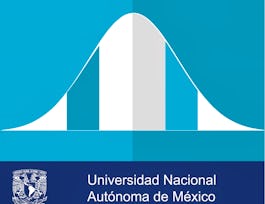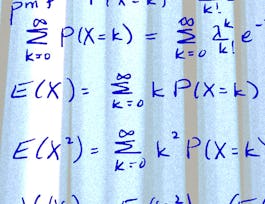This course provides a comprehensive exploration of statistical relationships, focusing on the principles and applications of correlation and contingency tables. Students will learn to identify appropriate scenarios for using correlation, understand its logic, and describe its direction and strength. The course also covers the use of contingency tables, teaching students to recognize patterns of association within them.



Measures of Correlation and Contingency
This course is part of Data Exploration in Psychology Specialization


Instructors: Mike Stadler, PhD
Sponsored by Coursera Learning Team
Recommended experience
What you'll learn
Explain the logic of the Pearson correlation and its appropriate uses.
Describe a correlation in terms of direction and strength.
Explain the use of contingency tables to describe patterns of association between variables.
Details to know

Add to your LinkedIn profile
11 assignments
September 2024
See how employees at top companies are mastering in-demand skills

Build your subject-matter expertise
- Learn new concepts from industry experts
- Gain a foundational understanding of a subject or tool
- Develop job-relevant skills with hands-on projects
- Earn a shareable career certificate


Earn a career certificate
Add this credential to your LinkedIn profile, resume, or CV
Share it on social media and in your performance review

There are 7 modules in this course
This module introduces you to your PsycLearn Essentials course. Find out what’s included in this course and how to navigate the modules and lessons. You’ll also learn valuable study tips for successful learning.
What's included
1 video7 readings
This course provides a comprehensive exploration of statistical relationships, focusing on the principles and applications of correlation and contingency tables. Students will learn to identify appropriate scenarios for using correlation, understand its logic, and describe its direction and strength. The course also covers the use of contingency tables, teaching students to recognize patterns of association within them.
What's included
1 video1 reading
What kinds of relationships are there between variables? As you will see in this module, the answer depends on the kinds of variables. How do we envision those relationships? This module explains what we can do with a data set to begin to see the relationship, if any, between two variables? And if there is a relationship, how do we interpret it? This module delves into what we can and cannot conclude when we observe a relationship between two variables.
What's included
4 videos2 readings3 assignments
In this module, we look in more detail at how correlation is used to examine the relationship between two variables, along with how related regression procedures can be used to specifically characterize how the value of one variable can be used to predict the value of the other.
What's included
4 videos2 readings4 assignments
In this module, we look in more detail at how contingency tables are used to examine the relationship between two nominal- or ordinal-level variables, along with some measures of the strength of a contingency relationship.
What's included
2 videos1 reading3 assignments
What's included
2 readings1 assignment
This module provides a variety of information and tools from the American Psychological Association (APA) that will help inspire you as you complete your coursework and plan your career goals. Explore APA resources on various psychological issues and scholarly research and writing; a list of sites providing valuable resources on diversity, equity, and inclusion in psychology education and in the professional community; resources on a career in psychology; and links to career opportunities at the APA.
What's included
8 readings
Instructors


Offered by
Why people choose Coursera for their career




Recommended if you're interested in Data Science

Universidad Nacional Autónoma de México

Coursera Project Network

Duke University

University of Colorado Boulder

Open new doors with Coursera Plus
Unlimited access to 10,000+ world-class courses, hands-on projects, and job-ready certificate programs - all included in your subscription
Advance your career with an online degree
Earn a degree from world-class universities - 100% online
Join over 3,400 global companies that choose Coursera for Business
Upskill your employees to excel in the digital economy


